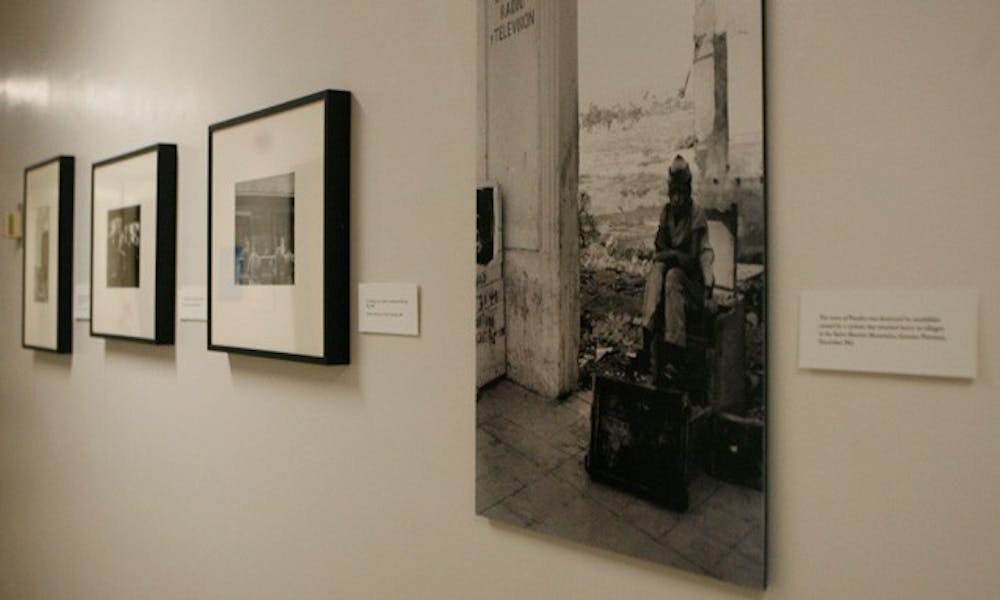Journalist Deena Stryker’s poignant collection of photographs spans only two years but captures slice-of-life moments during the upheaval and uncertainty of the Cuban Revolution.
Deena Stryker: Photographs of Cuba, 1963-1964 showcases 30 gelatin silver prints featuring major political figures, such as Fidel and Raul Castro, to everyday people in Havana and in rural Cuba. Her photos are simple, small and clean, allowing the stark reality of the conditions to speak for itself.
The images line the hallway of Perkins Library’s Special Collections Gallery without a clear chronological or thematic order, though the portraits of political leaders are all grouped together. The more solemn scenes of rallies, marches and political monuments are juxtaposed with playful, humanizing depictions, such as Raul Castro gazing at his young daughter.
The conglomeration of seemingly contradictory pieces reflects the unsettling times, during which the abandoned mansions of the rich were transformed into boarding schools and housing projects were constructed amid an explosion of touristy venues. Stryker’s diverse coverage of all such events illustrates the multifaceted impact of the Revolution on peoples’ lives.
This time of transition, as people struggled to make sense of the revolutionary ideals and the harsh Cold War politics, touched a wide range of people. Stryker’s photos include scenes of women leaders, rural children and Afro-Cubans as they adjusted to their new status in Cuban society. The black-and-white approach captures the hard, piercing lines in people’s expressions and allows a certain rawness of emotion to shine through.
The most telling piece of the collection was larger than the others, showing women ascending a staircase in the luxurious Havana Libre Hotel for the first national conference of food industry workers. The photo demonstrates both the advances that women made as well as the barriers that obstructed their progress. Although some were leaders in the movement, the majority of women stood in the background, their faces hidden and backs turned.
Stryker’s collection is simple but effective, lending insight to a time that is all too often characterized by political stereotypes and generalizations.
Deena Stryker: Photographs of Cuba, 1963-1964 will be on display through Dec. 12 in the Special Collections Gallery in Perkins Library.
Get The Chronicle straight to your inbox
Signup for our weekly newsletter. Cancel at any time.

